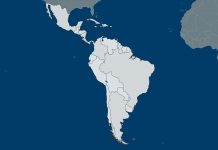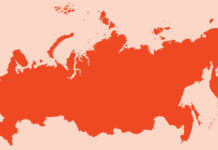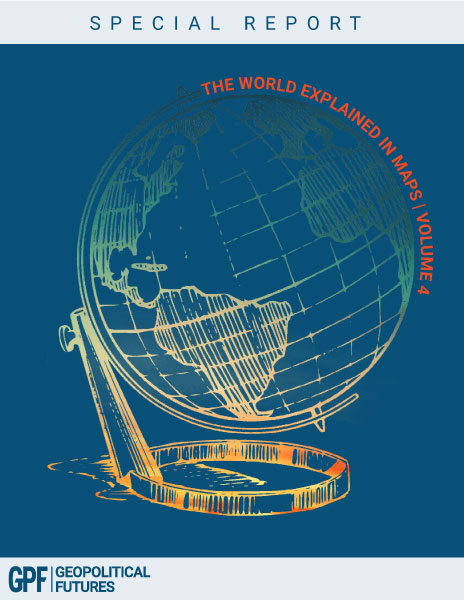The economic retaliation against Russia for invading Ukraine is starting to shape up. The United States announced on Feb. 24 that along with Canada, the United Kingdom and the European Union, it would impose a variety of sanctions against Russia. Russian President Vladimir Putin, Foreign Minister Sergey Lavrov, Defense Minister Sergei Shoigu, military chief Valery Gerasimov and hundreds of members of the Russian parliament and Security Council, as well as a variety of businessmen and oligarchs, have been put on an asset freeze and travel ban list.
But among the most important measures is the disconnection of Russian banks from SWIFT, a member-owned association connecting more than 11,000 banks, financial institutions and corporations in more than 200 countries and territories, allowing them to communicate rapidly, securely and inexpensively. (Because SWIFT was formed in Belgium, it must comply with EU regulations. This is why even though the U.S. in theory could have pressured SWIFT to move even more quickly against Russia, it needed the EU on board.) It is a critical service provider, having a systemic role in supporting payment systems worldwide. In practical terms, SWIFT allows bank customers from corporations to students to pensioners to make daily transactions. It connects your account in your bank to another account in another bank, making rapid payments possible.
If all Russian banks are excluded from SWIFT, it will be extremely difficult for Russia to make financial transactions of nearly any kind internationally, let alone circumvent sanctions. In terms of registered users, it is the second-largest country in the association after the U.S. That includes about half (or roughly 300) of Russia’s financial institutions.
The obvious question the SWIFT issue raises is whether Europe, which is highly exposed to Russia’s economy, particularly on energy, might be shooting itself in the foot. But SWIFT notably doesn’t monitor the details of every transaction, and in any case, Western press releases all noted that only “select” banks would be disconnected. It’s possible the EU – led by Germany, a huge buyer of Russian hydrocarbons – has given itself room to continue to buy some Russian energy. Such things are still negotiated and details will be released soon.
Even so, the inability to use SWIFT for regular payments will hurt European economies operating in Russia. Energy firm BP, for example, is already considering divesting. London-listed Coca-Cola HBC, which bottles Coke for Russia, Ukraine and much of Central and Eastern Europe, employs 7,000 people. French yogurt maker Danone controls Russian dairy brand Prostokvashino and gets 6 percent of total sales from the country. (This is to say nothing of the many Asian companies operating in Russia that will likewise be affected.)
The belief is that the measures will hurt Russia much more than Europe. But as important, they are meant to buy time for businesses to adapt and react to changes affecting their operations. This is the EU after all. That means the process will be slow. It will take days or weeks for this to go into effect.
Fear, of course, moves faster, especially for Russian citizens who don’t know what to expect next. They have understandably rushed to banks and ATM machines to withdraw money. (Mastercard, Visa and ApplePay will no longer work for them once the SWIFT measures are implemented.)
However, Russia is insulated from its expulsion somewhat by the System for Transfer of Financial Messages (SPFS), its homegrown version of SWIFT. Only about 20 percent of all domestic transfers are conducted through SPFS currently, but that figure will surely grow. It has plenty of drawbacks – it doesn’t work on the weekend, and messages are limited to a much smaller 20KB – but it has virtually no international exposure, and Belarus said in December that it would leave SWIFT for the SPFS.
Russia hopes expansion won’t stop there. Since 2019, Moscow has been planning to link the SPFS to Eurasian Economic Union members (Armenia, Belarus, Kazakhstan and Kyrgyzstan) as well as Iran, India and Turkey. Russia is also reportedly seeking to integrate the SPFS with the China-based Cross-Border Inter-Bank Payments System (CBIBPS), something that may be accelerated considering the current urgency.
But the SPFS’ success elsewhere will depend entirely on the state of the Russian economy. So far, things aren’t looking great: Many people are cashing in their deposits, and international businesses are thinking of leaving the country. Most withdrawals are taken out in dollars and euros. International companies closing down businesses will transfer their funds abroad in foreign currencies and those adapting will likely set up reserves in dollars or euros, all considered more reliable in times of crisis in Russia. All this is putting inflationary pressure on the Russian ruble. Uncertainty is unfriendly to the currency of an already weakened economy.
This is why, for the time being, the more potentially devastating sanctions involve restrictions on how Russia’s central bank can deploy its international reserves. They will certainly be implemented more quickly than SWIFT restrictions, and they will prevent Russia from using its reserves to combat inflation. (Note: Russia currently holds about $640 billion in reserves, more than half of which is held in foreign currencies. Demand for the Russian ruble is already low after three days of war in Ukraine. Moscow would need to increase liquidity to counteract this pressure – sell some of the dollars, euros or gold it held internationally and counter the increase in demand for foreign currency against the ruble on its internal market. But that will, of course, now be more difficult.)
More details will come out about the sanctions regime, which could always change, but from what we can tell so far they are bad for Russia and Russia alone. They introduce the prospect of hyperinflation – with no ability to use reserves to deter the already growing inflation, short of crucial imports, Russian production would become more expensive. Printing money will become the only solution, but the limited ability to pay for producing goods and services and mass unemployment will be just around the corner. Little wonder, then, that President Vladimir Putin has already asked for negotiations.







